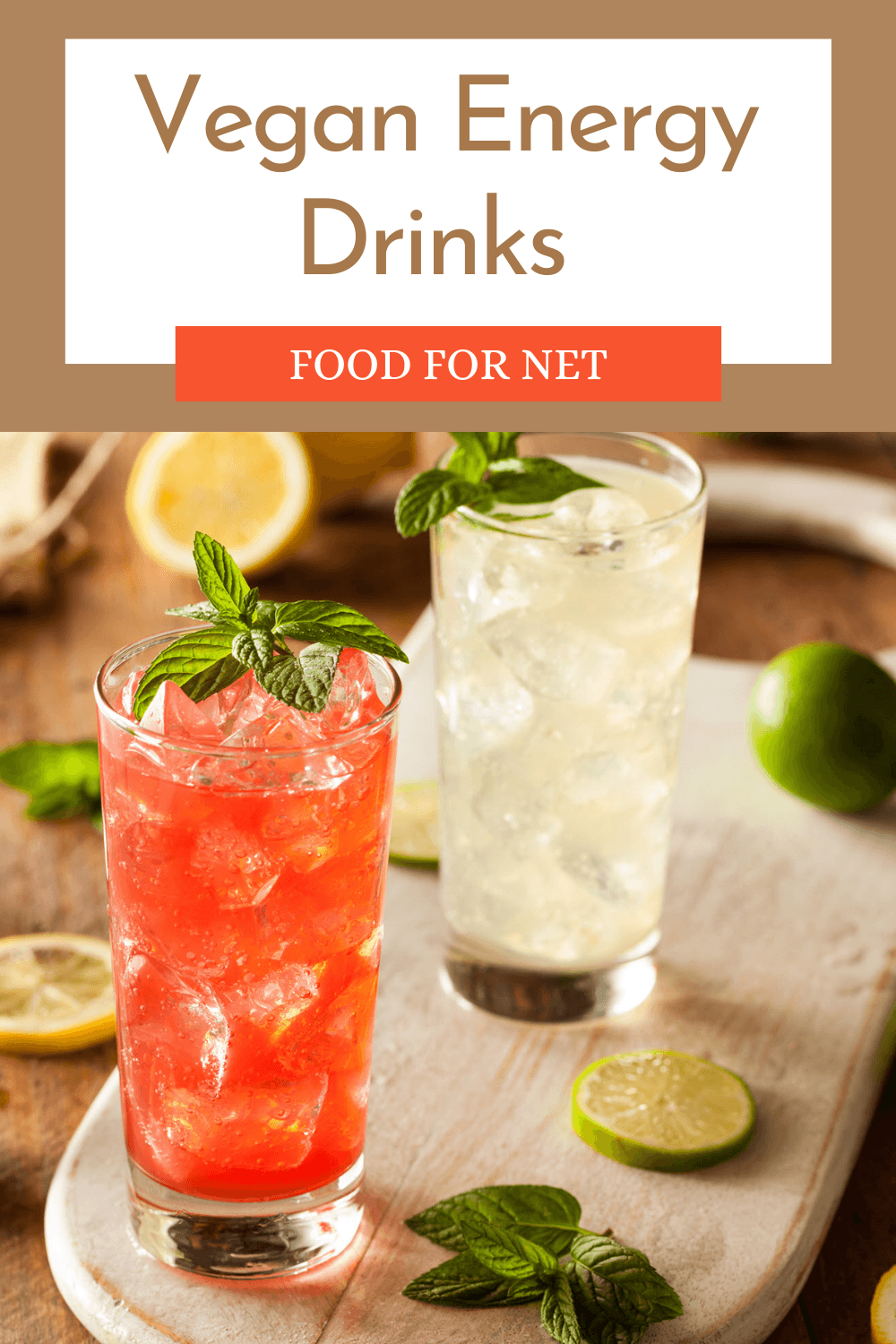
Energy drinks are popular. Hardly surprising, right? They give you a boost of energy right when you need it most. They seem like a good choice for vegans too, as there’s no need to rely on animal-based ingredients. And, thankfully, there are many vegan energy drinks to choose from.
However, it’s still important to pay close attention to the label of your energy drink. Some brands use animal-based ingredients for thickness or stability. Honey may be used as an alternative sweetener too, which is problematic for some vegans.
Even when energy drinks are entirely vegan-friendly, they may use ingredients you’re not happy with. After all, vegans often focus on healthy and natural foods whenever possible, while energy drinks tend to be loaded with additives.
Still, with so many brands out there, it’s not too difficult to find high quality ones that meet your needs. There are even a surprising number of healthy energy drinks.
For this post, we’re focusing on energy drinks that have been verified as vegan friendly. Most of these also focus on natural ingredients, although there are a few mainstream products in the mix too.
Vegan Energy Drinks
Celsius Live Fit
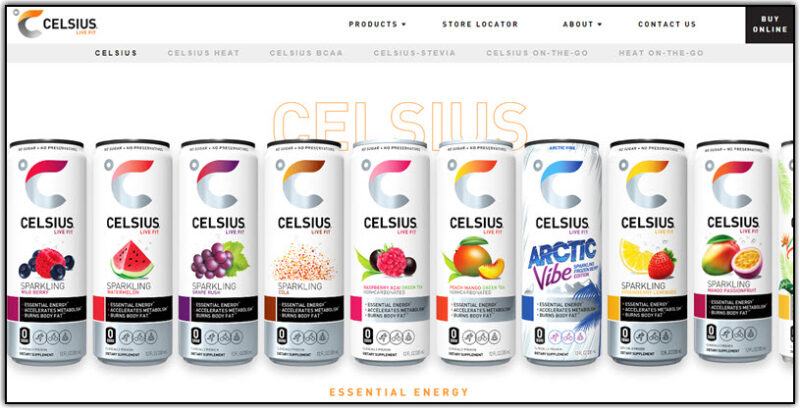
Celsius Live Fit is a powerful brand, offering plenty of flavors and different product lines. There’s a fantastic amount of variety, with 15 different flavors in the original product line alone.
However, vegans will need to be careful with the drinks they choose. The original product line, Celsius On-The-Go, and Celsius Stevia are all vegan friendly, but Celsius Heat and Celsius BCAA don’t appear to be.
Celsius Stevia is probably the best choice anyway, as this version avoids artificial sweeteners and uses naturally derived caffeine. This makes the drinks some of the healthiest options on the market.
Guayaki Yerba Mate
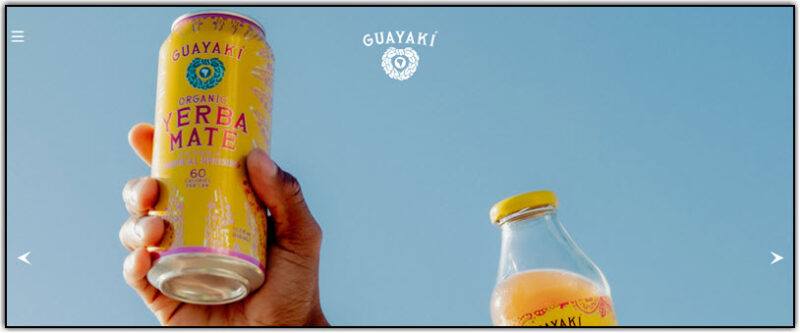
Guayaki relies heavily on yerba mate. This should help to give you a decent energy boost without jitters. Their main version comes in a 15.5 ounce can and provides 150 mg of caffeine.
Not only is the drink completely vegan friendly, but the company also focuses on organic natural ingredients. As such, this is much healthier than conventional energy drinks.
However, the classic version is basically sweetened yerba mate tea and contains around 27 grams of sugar per serving. That’s less sugar than many of the classic energy drinks, but it’s still a lot.
Thankfully, there are a few lower sugar versions. One is their non carbonated Tropical Uprising, which contains around 11 grams of sugar per serving. There’s also the sparkling Blackberry Mint. That one is even more impressive, with just a gram of sugar per can.
Monster Energy Drinks
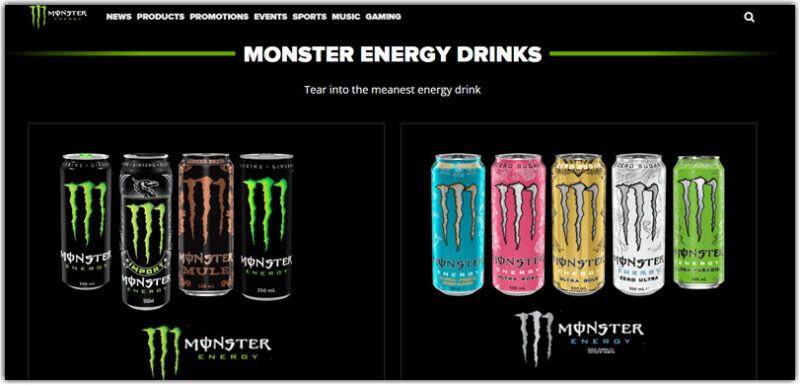
Monster Energy drinks are typically vegan. This is fantastic, as the drinks are so easy to find and there are plenty of flavors.
However, if you live in the UK, you’ll need to be cautious of Monster Ultra Red, as this version gets its coloring from carmine (which comes from beetles). The American version doesn’t follow this pattern.
Watch out for the Java Monster line as well. This includes milk, so it’s not suitable for vegans.
Red Bull

Red Bull is another mainstream product that avoids animal-based ingredients entirely. This means you can even enjoy a few Red Bull cocktails, if you’re so inclined.
There is a little controversy though, partly because the products contain artificial colors, which are sometimes tested on animals. If this concerns you, you could turn to Red Bull’s organic line, which avoids artificial colors. Or, stick with the other entries on this list, as many of them avoid artificial ingredients entirely.
Bang Energy

Bang is another big brand, known for high caffeine energy drinks. Seriously, you get roughly 300 mg of caffeine in one of their 16 ounce cans. That’s impressive and a bit scary.
The energy drink is sugar-free and contains plenty of ingredients that are meant to help with energy and workouts, including CoQ10, EAA aminos, and creatine.
There’s plenty of online debate about whether Bang is vegan friendly or not. Some blog posts suggest it isn’t, based on the use of animal derived BCAAs. However, that idea was mostly rumor and wasn’t ever proven.
Even if the drinks weren’t vegan-friendly at some point, they are now. Bang’s reformulation relies on EAAs instead of BCAAs and the company explicitly states that their drinks are vegan-friendly.
Rockstar

We’re not going to cover all the mainstream energy drinks, but Rockstar is too big to pass up. The company confirms that their drinks are entirely vegan and that their taurine is synthetic.
The ingredients are similar to other mainstream products, including natural and artificial flavors, artificial colors, maltodextrin, guarana, and the like. It’s not the healthiest balance of ingredients, but you do get around 160 mg of caffeine in a 16 ounce can, which is decent.
There are also many flavors and styles to try. Just watch the sugar content, as a 16 ounce can of their original flavor contains 63 grams of sugar. That’s insane.
FITAID Energy
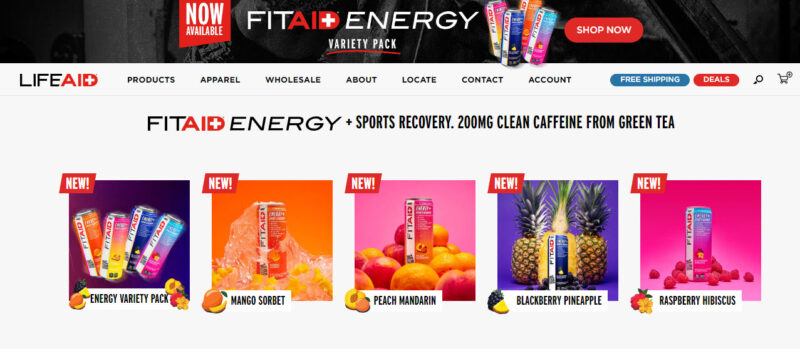
FITAID Energy is strongly focused on athletes. The drinks have a huge list of extras that could help with performance, including BCAAs, electrolytes, glutamine, and more.
The drink doesn’t compromise on quality either, as the ingredients come from natural sources. This is even true for the caffeine, which is sourced from green tea extract. Despite the BCAAs, all flavors of FITAID Energy are completely vegan friendly.
The one limitation is that the drinks aren’t sugar free. That said, they only contain around three grams of sugar per serving. That’s not really enough to be worried about, especially if you’re only having an energy drink every so often.
Yerbaé
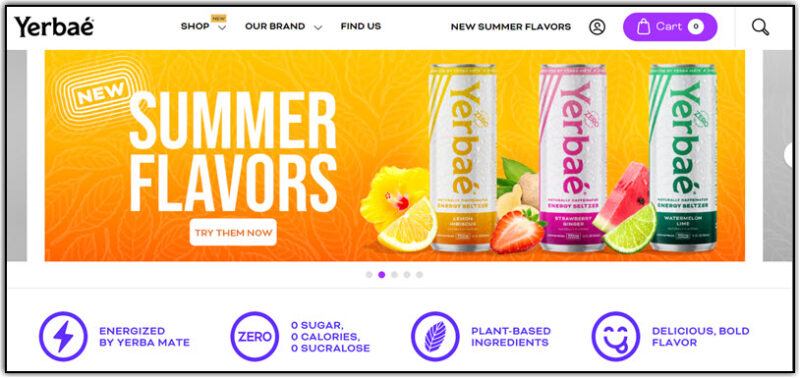
Yerbé is an excellent plant-based option. The company has two main options – 16 ounce energy drinks and 12 ounce energy seltzers.
The energy drinks are naturally sweetened with stevia and don’t contain any sugar at all. The ingredients list is impressively short for drinks that still taste good.
The energy seltzers are unusual, as these aren’t sweetened at all. While they take a little getting used to, they’re a great alternative to using sweeteners all the time.
Zevia
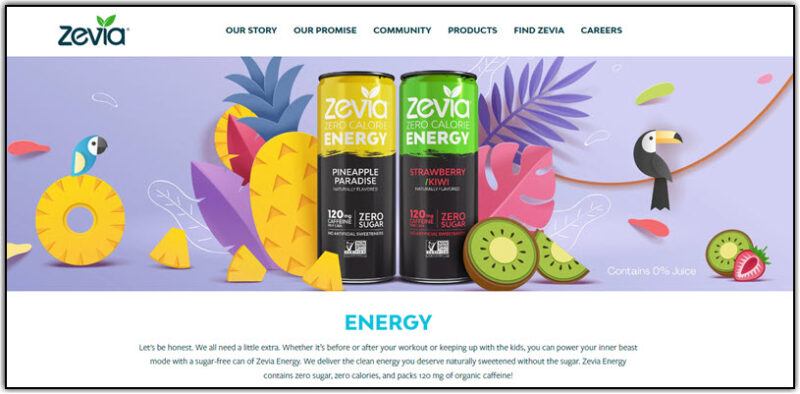
Zevia offers a variety of products, including soda, energy drinks, mixers, and even drinks for kids. The common thread is the use of stevia for sweetness.
The energy drinks are always plant-based. They also contain no calories or sugar, and tend to be clear because there aren’t any coloring agents. The drinks are pretty easy to find too, which is always helpful.
Tru
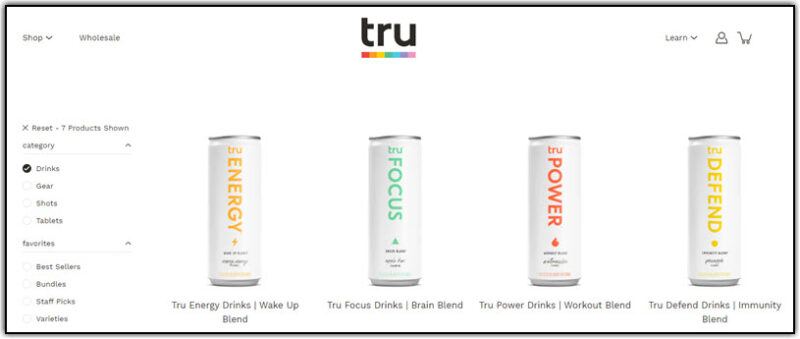
Tru has an interesting selection of functional drinks, including Tru Energy, Tru Focus, Tru Rescue, and Tru Defend. Each of these has a different focus. For example, Tru Focus is designed to help your mental function and offers a caffeine and various nootropics. In contrast, Tru Defend focuses on your immune system and uses ingredients like turmeric extract and ginger extract.
Three of the company’s products contain caffeine: Tru Energy, Tru Focus, Tru Power. They’re all vegan friendly, while also being low in sugar and calories.
While there’s a little fruit juice in the mix, most of the sweetness comes from a combination of stevia, monk fruit extract, and erythritol. There are no artificial sweeteners, colors, or flavors, making this a healthy drink.
RIOT Energy
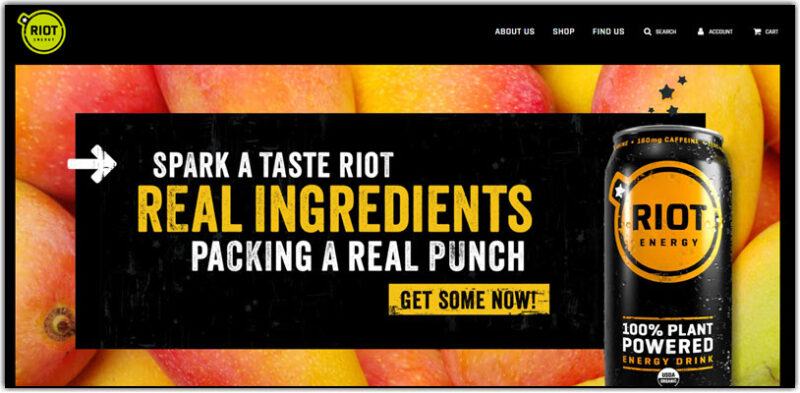
RIOT Energy focuses on being plant-based, making them an ideal choice for vegans. Their energy drinks come in 16 ounce cans, with flavors like mango, berry, and citrus lime.
The drinks use natural sources of caffeine and avoid additives as much as possible. Even their flavoring mostly comes from natural ingredients like mango puree and pineapple juice.
There’s 160 mg of caffeine per can, making the drinks pretty decent as a source of energy.
The use of juice does mean there is some sugar. For example, the mango flavor contains 4 grams of sugar per serving and there’s two servings per can. This is still much less sugar than conventional energy drinks. Whether it is too much for you will depend on your goals.
Toro Matcha
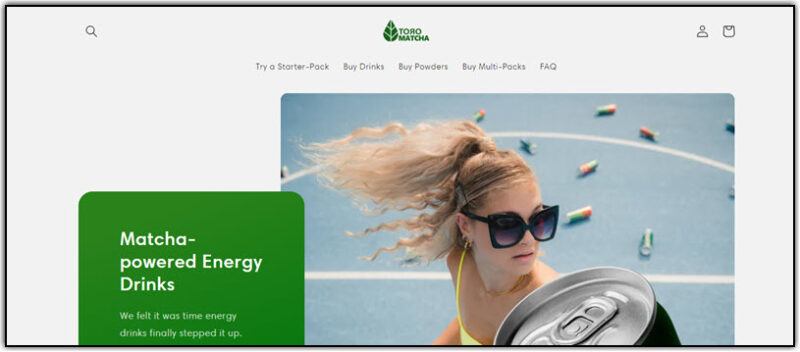
Toro Matcha is another brand to consider. This company keeps things simple by relying on matcha tea as the base ingredient. Other ingredients include sparkling water, organic natural flavors, chlorophyll, and citric acid. That’s it. It’s an impressively short ingredients list, with few additives to be seen.
An odd feature is that Toro Matcha avoids sugar and sweeteners. Most energy drinks contain at least one of these, often both. Skipping them gives you a less sweet drink that’s definitely better for you.
The drinks are lower in caffeine than most, with just 60 mg of caffeine per serving. This isn’t necessarily bad though, as the lower caffeine decreases the risk of jitters. Besides, 60 mg is still a decent amount.
MATI
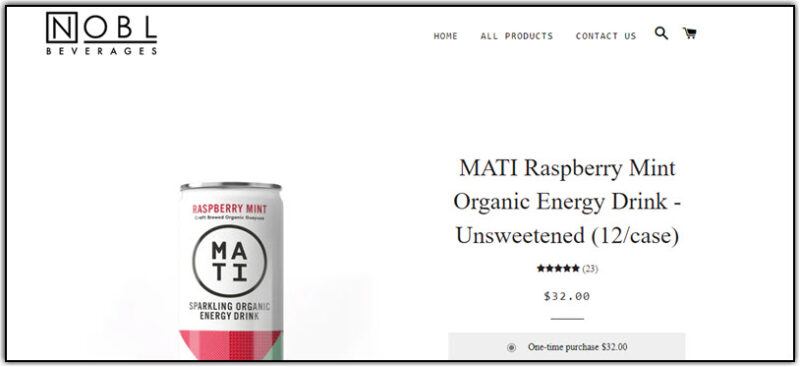
It would be hard for MATI energy drinks to not be vegan friendly, as they contain so few ingredients. Seriously, their zero calorie grapefruit version only includes water, guayusa leaves, natural flavors, and lime juice concentrate. That’s it.
The caffeine comes from the guayusa leaves, which are brewed much like tea leaves. There isn’t even any sweetener in this version.
If you do prefer your drinks a little sweeter, you could try the regular versions instead. These are roughly 46% fruit juice, which makes them much sweeter. There’s no added sugar though and the sugar content is still lower than many other brands.
Proper Wild Energy Shots
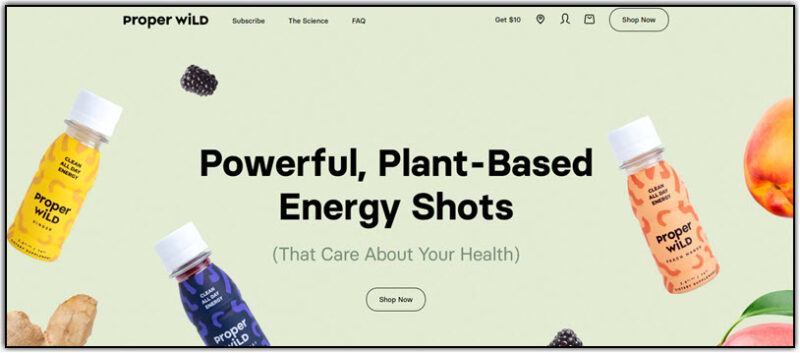
Proper Wild shots are famous for being a clean choice. The company focuses on the most natural ingredients possible, including juice concentrate, purified water, natural caffeine, and l-theanine. There are natural flavors too, but that’s the only highly processed ingredient.
The shots are all 2.5 ounces, making them easy to store in your bag and drink on the go. They’re also impressive, with 100 mg of caffeine in that tiny serving.
There’s one limitation though – the sugar. While the shots contain much less sugar than a full energy drink, you are still getting 9 grams of sugar in a tiny serving. This might be too much, especially if you’re following a low carb diet.
Rowdy Energy

Like many of the entries on this list, Rowdy Energy focuses on producing healthy drinks. This includes using natural ingredients and keeping the sugar content down. They also add electrolytes, making their drinks a useful alternative to sugary sports drinks like Gatorade.
The company’s main line of drinks comes in flavors like blue raspberry, chiseled ice, and peach mango. These contain 18 grams of sugar per serving, which isn’t too bad for a 16 ounce can.
There’s also a sugar free range, with just as many flavors. These drinks drop the sugar out entirely, giving you a can with just 5 calories per serving.
Interestingly, the drinks use four different sweeteners: erythritol, allulose, stevia, and monk fruit extract. This approach feels like overkill, but Rowdy Energy does so to help balance out the flavor profiles of the individual sweeteners. The drinks do get excellent reviews, so the company is clearly doing something right.
Sambazon
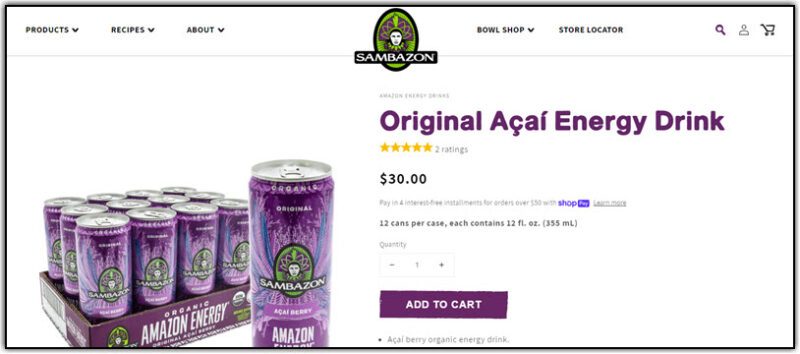
If you love açaí berries or want more antioxidants in your diet, Sambazon energy drinks could be perfect. The drinks are all vegan friendly and have plenty else going for them.
Three of them rely heavily on sugar, giving you a whopping 25 grams of sugar per 12 ounce can. While some of that sugar comes from fruit juice, much of it is added through invert cane syrup.
Still, there’s a strong focus on natural ingredients. Many of them are organic too, making the drinks healthier than many competing products.
You could also turn to the low calorie version of their drink. This drops down the sugar dramatically, leaving you with just 6 grams per can. The sugar is complemented by natural sweeteners, including erythritol and stevia. These make sure the drink is still delicious.
Hiball Energy Seltzer Water
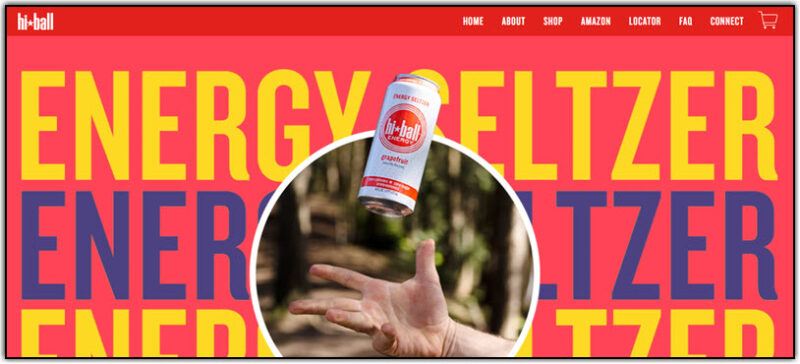
Hiball drinks are fantastic if you’re trying to keep your diet as clean as possible. They’re energy seltzers, which means there aren’t many coloring or flavoring ingredients.
Hiball takes the idea more seriously than most, as they company avoids sweeteners entirely. This isn’t a common approach, but it makes sense. After all, why do we need sweeteners added to everything? Many foods and drinks are just fine without them.
While Hiball doesn’t talk about vegans on their website, the drinks don’t contain any animal-based ingredients at all. So, drinking them comes with no risk.
What About Taurine?
Most of the energy drinks on this list avoid taurine, which makes sense, as taurine most often found in meat. However, taurine in energy drinks isn’t sourced this way.
Instead, most brands create their taurine synthetically, making it completely fine for vegans.
Whether you should supplement with taurine or not is an entirely different discussion. Despite being promoted as an energy booster, there are concerns that taurine may sometimes have the opposite effect.
Besides, do you really want to rely on something that’s synthetically produced?

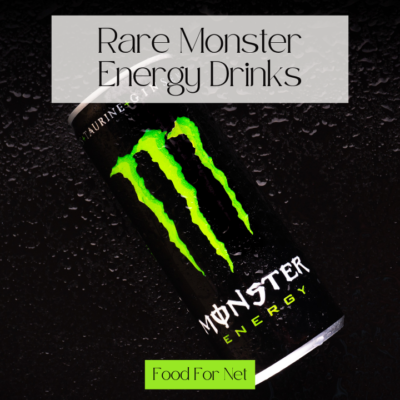
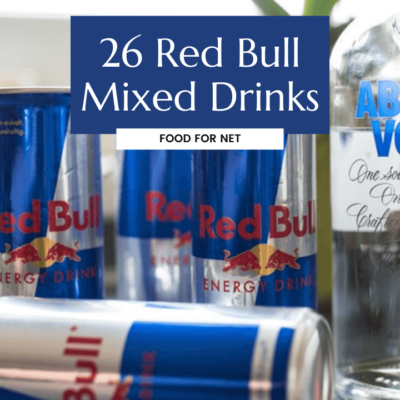
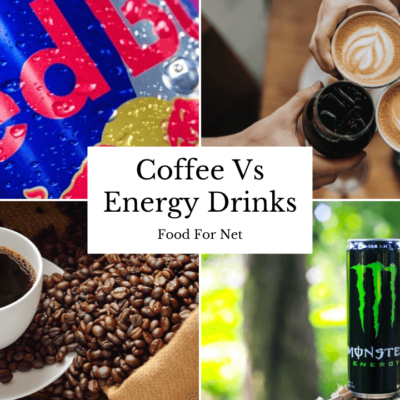
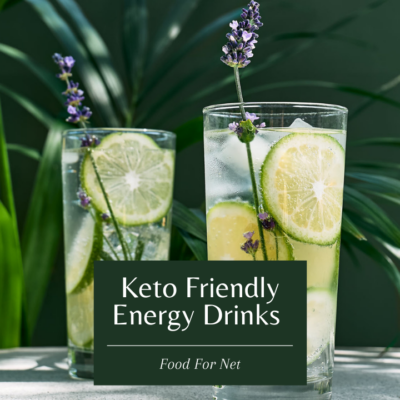
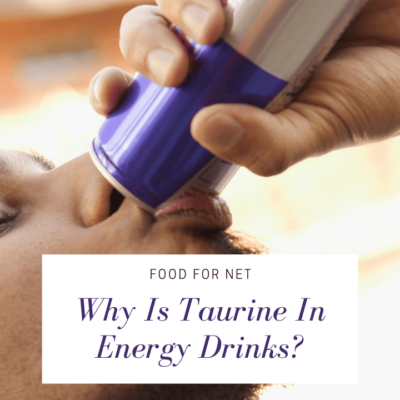
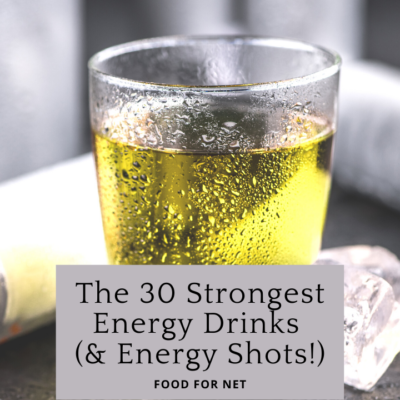

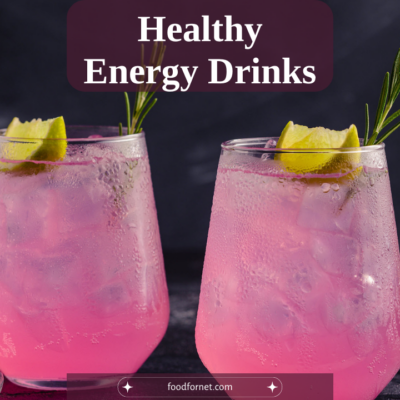
 16 Keto Friendly Energy Drinks To Keep You Going
16 Keto Friendly Energy Drinks To Keep You Going
Leave a Reply